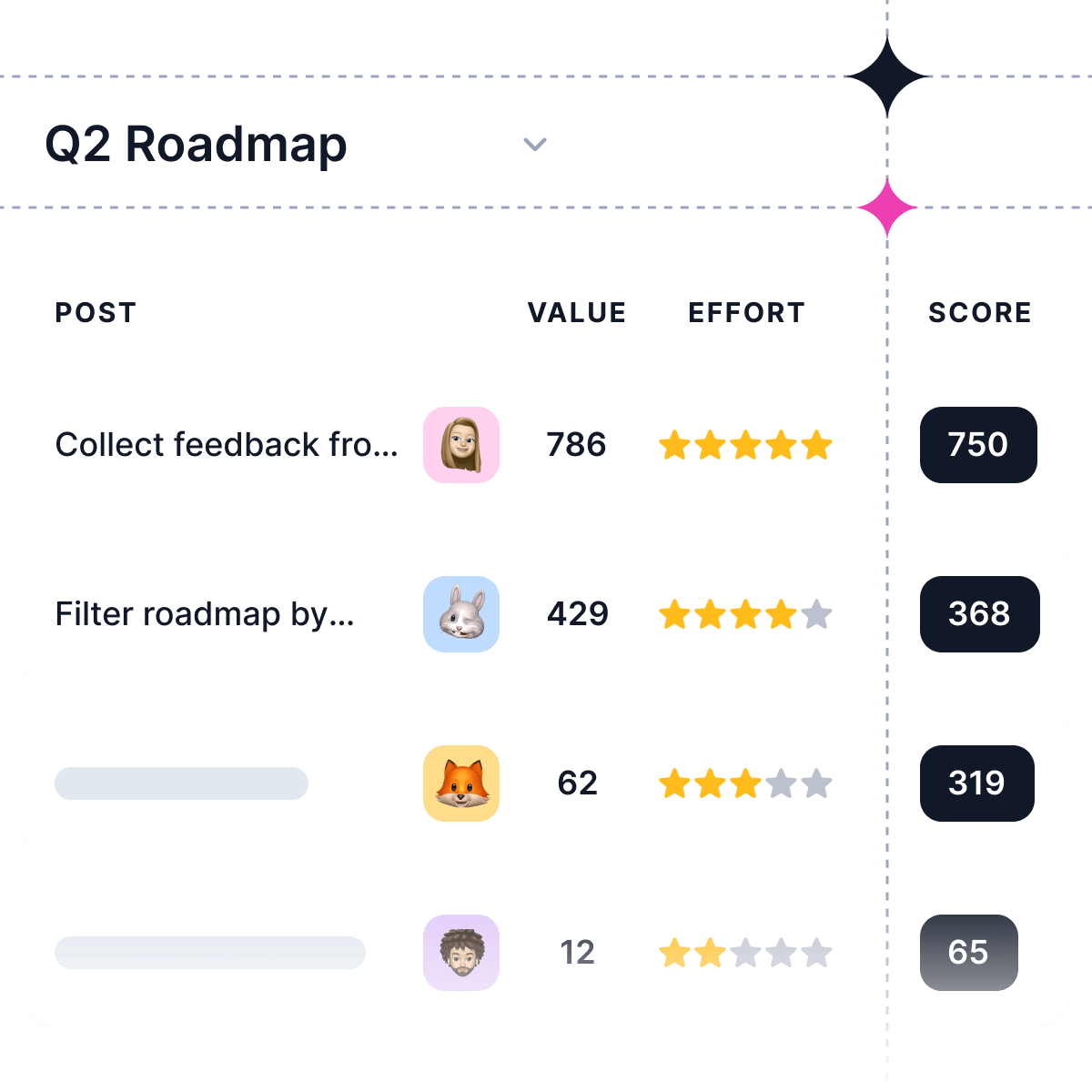In the world of product development, two roles often come up in discussions: the Product Manager and the Product Owner. These roles may seem similar at first glance, but they have distinct differences and responsibilities. This blog post will help you understand the key differences between a Product Manager and a Product Owner, and how each role contributes to the overall success of a product.
What is a Product Manager?
A Product Manager is responsible for guiding the overall strategy, vision, and roadmap for a product or product line. They work closely with cross-functional teams, such as engineering, design, and marketing, to ensure that the product is built according to the needs of the customers and the goals of the business.
Key Roles & Responsibilities of a Product Manager
-
Product Strategy: A Product Manager defines the product's strategic direction, including its target market, value proposition, and competitive positioning.
-
Product Roadmap: A Product Manager creates and maintains the product roadmap, outlining the planned features, enhancements, and timelines for product development.
-
Requirements Gathering: A Product Manager works closely with teams and stakeholders to gather and prioritize product requirements, ensuring that the product meets the needs of its users.
-
Cross-functional Collaboration: A Product Manager collaborates with various departments, such as engineering, design, and marketing, to ensure that the product is developed on time, on budget, and with the desired quality.
-
Product Launch: A Product Manager oversees the product launch process, coordinating with marketing, sales, and customer support teams to ensure a successful launch.
What is a Product Owner?
A Product Owner is a role commonly found in Agile and Scrum development methodologies. They are responsible for maximizing the value of the product by prioritizing features and user stories in the product backlog. The Product Owner works closely with the development team to ensure that the right features are built in the right order.
Key Roles & Responsibilities of a Product Owner
-
Product Backlog Management: A Product Owner is responsible for creating, refining, and prioritizing the product backlog, which contains the features and user stories to be built by the development team.
-
User Story Definition: A Product Owner writes clear, concise user stories, with well-defined acceptance criteria, to ensure the development team understands the desired outcome of each feature.
-
Stakeholder Management: A Product Owner communicates with stakeholders to gather feedback and ensure that their needs are represented in the product backlog.
-
Sprint Planning: A Product Owner works with the development team to plan each sprint, selecting the highest-priority user stories from the product backlog to be included in the sprint.
-
Acceptance: A Product Owner reviews and accepts completed user stories, ensuring that they meet the defined acceptance criteria and deliver the desired value.
Key Differences Between Product Manager and Product Owner
Here are six key differences between Product Managers and Product Owners:
Strategic vs. Tactical Focus:
Product Managers have a strategic focus and are responsible for the overall product vision, strategy, and roadmap. They consider market trends, customer needs, and business objectives. Product Owners have a tactical focus and work closely with the development team to ensure the successful delivery of product increments. They manage the product backlog, define user stories, and prioritize features.
External vs. Internal Stakeholder Management:
Product Managers engage with external stakeholders, such as customers, partners, and industry experts, to gather feedback and validate ideas. They use this information to inform product decisions.
Product Owners primarily collaborate with internal stakeholders, including the development team, Scrum Master, and other product/project stakeholders, to manage scope, resolve conflicts, and ensure alignment.
Breadth of Responsibilities
Product Managers have a broader set of responsibilities that encompass the entire product lifecycle. They work cross-functionally with various teams and departments, including engineering, design, marketing, and customer support.
Product Owners focus more on the execution of the product, with responsibilities centered around backlog management, sprint planning, and collaborating closely with the development team.
Business Orientation
Product Managers often have a more business-oriented perspective. They consider revenue generation, market growth, and the overall success of the product in alignment with business objectives.
Product Owners are more focused on delivering value to customers and stakeholders within the scope of each development iteration or sprint.
Decision-Making Authority
Product Managers typically have higher decision-making authority, especially regarding the product vision, roadmap, and high-level strategic direction.
Product Owners have decision-making authority within the scope of the product backlog and sprint planning, working closely with the development team to make tactical decisions and prioritize features.
Long-term Planning vs. Iterative Execution
Product Managers engage in long-term planning efforts, defining the product direction, conducting market research, and creating a roadmap that spans multiple iterations or releases.
Product Owners are more involved in iterative execution within the agile development framework, managing the product backlog, defining user stories, and ensuring the successful implementation of each sprint.
It's important to note that the specific responsibilities and overlap between Product Managers and Product Owners can vary depending on the organization, product development approach, and the size of the team.
How to transition from a product owner to a product manager?
Transitioning from a Product Owner to a Product Manager can be a natural career progression. Here are some steps that can help you make a successful transition:
-
Understand the Differences: Before making the transition, it is essential to understand the key differences between the two roles in terms of responsibilities, priorities, and areas of focus. This will help you identify the skills you need to develop and determine the gaps you need to fill when you become a Product Manager.
-
Expand Your Business Acumen: As a Product Manager, you need to have a broader understanding of business strategy, market trends, and customer needs. To develop your business acumen, you can read industry publications, attend conferences, and seek mentors in your company who can help you understand cross-functional business perspectives.
-
Build Your Leadership Skills: Product Managers are responsible for leading and motivating cross-functional teams, driving consensus, and influencing stakeholders. To develop your leadership skills, you can seek out leadership training programs, take courses in project management, and work on strengthening your communication and negotiation skills.
-
Focus on Strategic Thinking: While Product Owners focus primarily on the tactical aspects of implementing product requirements, Product Managers have more responsibility for strategic thinking, including product vision, roadmap, and competitive positioning. To build your strategic thinking skills, you can seek out mentorship, take relevant courses, and think critically about market trends and customer needs.
-
Immerse Yourself in the Product: When transitioning from Product Owner to Product Manager, it is crucial to shift focus from individual features and user stories to the broader product vision and strategy. Immerse yourself in your product, learn how it fits into the market, how it is consumed by customers, and how it can be adapted to deliver value to the business and customers.
-
Seek Opportunities to Lead: Finally, take advantage of opportunities to lead cross-functional initiatives, work on projects outside your comfort zone, and take on additional responsibilities. This will demonstrate your competence and your commitment to growing your skills, and it may open doors to new career opportunities.
Transitioning from a Product Owner to a Product Manager requires developing a strategic mindset, expanding your business acumen, and building your leadership skills. By focusing on these areas and seeking out growth opportunities, you can make a successful transition and advance your career.
Conclusion
In summary, while Product Managers and Product Owners play complementary roles in bringing products to market, they have distinct areas of responsibility and focus. Product Managers take a big-picture view, driving product strategy, vision, and cross-functional collaboration. Product Owners have a more tactical focus on maximizing product value through prioritizing features and working closely with development teams.
Understanding these key differences allows organizations to leverage the unique strengths of each role. With clear responsibilities and effective collaboration, Product Managers and Owners can work together to deliver successful products that meet customer needs and business goals.






